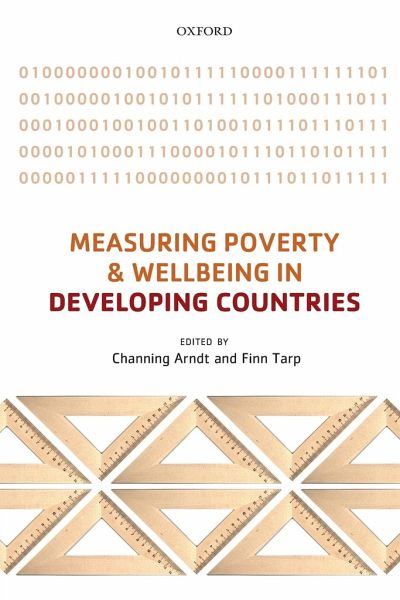
Measuring Poverty and Wellbeing in Developing Countries
Versandkostenfrei!
Versandfertig in 1-2 Wochen
62,99 €
inkl. MwSt.

PAYBACK Punkte
31 °P sammeln!
Detailed analyses of poverty and wellbeing in developing countries, based on household surveys, have been ongoing for more than three decades. The large majority of developing countries now regularly conduct a variety of household surveys, and the information base in developing countries with respect to poverty and wellbeing has improved dramatically. Nevertheless, appropriate measurement of poverty remains complex and controversial. This is particularly true in developing countries where (i) the stakes with respect to poverty reduction are high; (ii) the determinants of living standards are o...
Detailed analyses of poverty and wellbeing in developing countries, based on household surveys, have been ongoing for more than three decades. The large majority of developing countries now regularly conduct a variety of household surveys, and the information base in developing countries with respect to poverty and wellbeing has improved dramatically. Nevertheless, appropriate measurement of poverty remains complex and controversial. This is particularly true in developing countries where (i) the stakes with respect to poverty reduction are high; (ii) the determinants of living standards are often volatile; and (iii) related information bases, while much improved, are often characterized by significant non-sample error. It also remains, to a surprisingly high degree, an activity undertaken by technical assistance personnel and consultants based in developed countries. This book seeks to enhance the transparency, replicability, and comparability of existing practice. In so doing, it also aims to significantly lower the barriers to entry to the conduct of rigorous poverty measurement and increase the participation of analysts from developing countries in their own poverty assessments. The book focuses on two domains: the measurement of absolute consumption poverty and a first order dominance approach to multidimensional welfare analysis. In each domain, it provides a series of flexible computer codes designed to facilitate analysis by allowing the analyst to start from a flexible and known base. The book volume covers the theoretical grounding for the code streams provided, a chapter on 'estimation in practice', a series of 11 case studies where the code streams are operationalized, as well as a synthesis, an extension to inequality, and a look forward.




